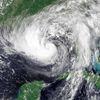
The impact of Hurricane Isaac on producers and exporters in its path across the Caribbean and southern states of the US has been minimised by prompt action on the part of authorities and businesses.
The deadly tropical storm increased speeds to gain hurricane status on Tuesday this week, after having swept across the island of Hispaniola, claiming 29 lives.
As FPJ went to press, the hurricane was poised to make landfall in Louisiana and other vulnerable American states, and president Barack Obama declared a state of emergency in Louisiana and Mississippi. Several ports also suspended cargo operations until after the storm passed over.
However, early indications were that fears for the Florida citrus crop were unfounded. As of Wednesday there were no reports of any damage to groves.
In the Dominican Republic, president Danilo Medina Sánchez visited those areas worst hit by the high winds and rain on Sunday and put in place a number of measures to restore normality to the country’s agricultural production.
He has set up 100 10-man emergency clean-up brigades that will be operational for some 45 days, clearing debris in plantations and fields in the south of the country.
The president has also ordered spraying programmes to be implemented in banana and plantain plantations to fertilise crops and control black sigatoka disease, as well as repairs to 150km of roads in the area and renewed plantings where they are required.
He said: “We are here to help all; small, medium and large scale producers who have suffered as a result of Isaac.”
Meanwhile, Cuba’s industry proved an unexpected beneficiary of the weather, with increased rainfall aiding citrus crops and replenishing reservoirs, according to local media.



